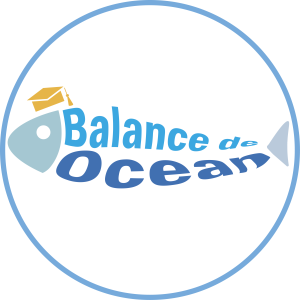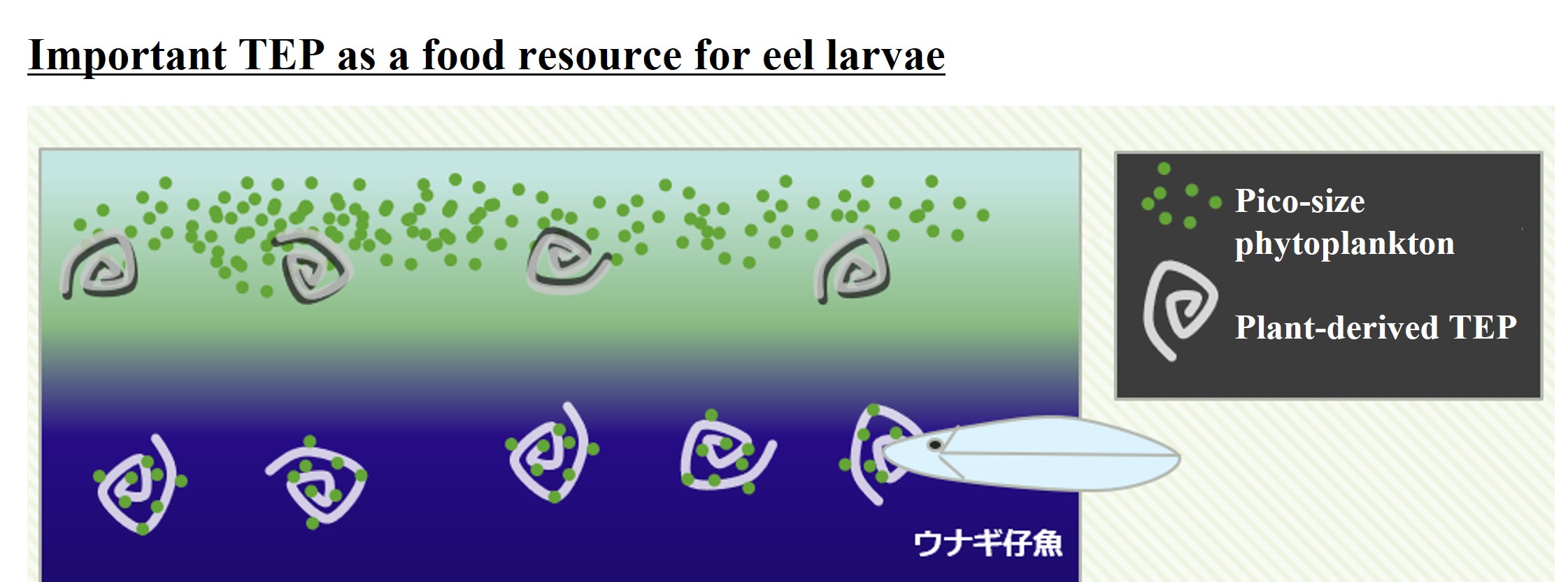Marine Snow (TEP is the correct term?) and Feeding of Eel Larvae
Section outline
-
-
Transparent Exopolymer Particle (TEP): Transparent extracellular polymeric particles are made of acidic polysaccharides. As explained below, algae are thought to produce, clothe, and shed TEP.
-
TEP floating in the ocean is attached to other organic particles (e.g., zooplankton feces) and is also home to a number of microorganisms. It is considered a valuable food resource for microorganisms. TEP-like gelatinous material is often found in the digestive tract of eel larvae.
-
Eel larvae are found at high densities just below the chlorophyll maximam layer. In that layer, there is a large amount of phytoplankton-derived TEP produced in the surface layer. In addition to TEP-like gel material, many picophytoplankton-like fluorescent particles were found in the digestive tract of eel larvae. Picophytoplankton is a major primary producer in subtropical waters. Their cell membranes are rich in nutrients, for example, they are composed of proteins. However, because the cell size is very small, about 1 to 2 μm, previous studies have thought that only protozoa prey on picophytoplankton. This study suggests that picophytoplankton attach to TEP floating in the ocean surface layer and exist at high density even just below the surface layer, where they become food for eel larvae.
I thought this research is very interesting from the viewpoint of oceanic material cycles.
-
We touched on the topic of picophytoplankton feeding by eel larvae. Speaking of "picophytoplankton" , Dr. SATO Mitsuhide of the University of Tokyo. Here is his paper in Japanese. He wrote about the feeding of picophytoplankton in detail.
-
It was Dr. Inoue of Hokkaido University's School of Fisheries Science who discovered and named marine snow. I would like to introduce a little of the background of this discovery.
Kuroshio, 1941
-
Some of the waters of the Pacific Ocean travel northward through the Bering Sea shelf area into the Chukchi Sea (Arctic Ocean).
Get to know the Arctic Ocean.
-



 ウナギ仔魚:Eel Larvae
ウナギ仔魚:Eel Larvae